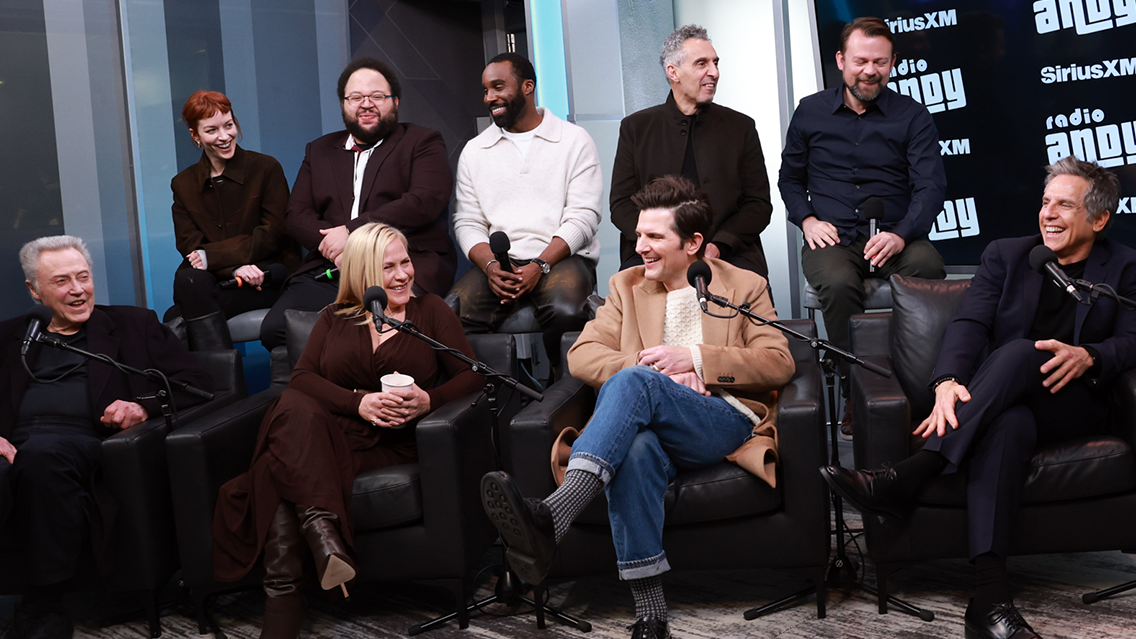Lalo Schifrin, Composer of the Classic ‘Mission: Impossible’ Theme, Dies at 93
In 2018, he became just the third film scorer to receive an Honorary Oscar, following Alex North and Ennio Morricone.

If he had only composed the unforgettable instrumental theme from Mission: Impossible, Lalo Schifrin would be fondly remembered. But the Argentine native had a seven-decade career that made him one of the premier composers in both film and television. Schifrin died Thursday (June 26) at age 93.
Schifrin received 19 Grammy nominations spanning 40 years (1962-2002) and multiple genres (both jazz and pop) and skillsets (composition, arrangement and performance). He won four Grammys.
Schifrin received four Primetime Emmy nominations – three for Mission: Impossible and one for his music for David Wolper’s The Making of the President 1964. He received six Oscar nominations, five for scores (Cool Hand Luke, The Fox, Voyage of the Damned, The Amityville Horror and The Sting II) and one for a song, “People Alone” from The Competition (1980), which he co-wrote with lyricist Will Jennings.
Schifrin never won a Primetime Emmy or an Oscar in competition, but in 2018 the Motion Picture Academy awarded him an Honorary Oscar “in recognition of his unique musical style, compositional integrity and influential contributions to the art of film scoring.” He was just the third film scorer to receive such an award, following Alex North (1985) and Ennio Morricone (2006). A fourth film scorer, Quincy Jones, was awarded an Honorary Oscar posthumously last year.
Schifrin’s Honorary Oscar was presented by Clint Eastwood, for whom Schifrin had scored many films, from Coogan’s Bluff (1968) to The Bridge of San Luis Rey (2004). Their work together included the iconic 1971 film Dirty Harry and its four sequels.
“I am very honored by this distinction that touches me profoundly,” Schifrin said in accepting the award. “My love and appreciation for motion pictures started very early in my life. I remember when I was five years old my parents took me to see a movie, a horror movie, and at that moment I realized that without music it wouldn’t be so scary. And it’s true. I have been fortunate to have the opportunity to work with great, outstanding directors, producers, and talented musicians in the creation of musical scores to support their projects. … Composing for movies has given me a lifetime of joy and creativity. Receiving this Honorary Oscar is a culmination of a dream. It is a ‘mission accomplished.’”
For all he accomplished, Schifrin’s Mission: Impossible theme is unquestionably his greatest hit. His music for that drama series, which aired on CBS from 1966-73, brought him two Grammy Awards, three Primetime Emmy nominations and high placements on the Billboard charts.
His “Mission-Impossible” theme reached No. 41 on the Billboard Hot 100 in January 1968. It won a Grammy for best instrumental theme in 1968 and was voted into the Grammy Hall of Fame in 2017.
Schifrin’s M:I score brought him a second Grammy in 1968 – best original score written for a motion picture or a television show. In the latter category, Schifrin bested scores from four feature films, which is highly unusual for a TV project, then or now. Schifrin’s album Music From Mission: Impossible reached No. 47 on the Billboard 200.
Schifrin told the New York Post in 2015 that the M:I theme came to him very quickly. And he said he composed it without seeing any footage from the show.
“Bruce Geller, who was the producer of the series, put together the pilot and came to me and said, ‘I want you to write something exciting, something that when people are in the living room and go into the kitchen to have a soft drink, and they hear it, they will know what it is. I want it to be identifiable, recognizable and a signature.’ And this is what I did.”
The theme transferred to the long-running film franchise starring Tom Cruise (who is slated to get his own Honorary Oscar in November.) Adam Clayton and Larry Mullen Jr. of U2 recorded Schifrin’s composition for the first M:I film in 1996. Their version reached No. 7 on the Hot 100 and was nominated for a Grammy for best pop instrumental performance – where it competed with Schifrin’s own new rendition of the theme which he recorded with the London Philharmonic Orchestra. (Both lost to Béla Fleck & The Flecktones’ “The Sinister Minister.”)
Schifrin’s highest-charting album on the Billboard 200 was a 1962 studio album, Bossa Nova – New Brazilian Jazz, which reached No. 35.
He won his first two Grammy Awards in 1965 and 1966 for “The Cat” and “Jazz Suite on the Mass Texts,” both of which were voted best original jazz composition.
Schifrin also wrote the pitch-perfect theme song for Mannix (also produced by Geller), which helped that Mike Connors P.I. series stay on the air for eight years (one year longer than M:I). His other TV themes include The Man From U.N.C.L.E., Medical Center, Starsky & Hutch, T.H.E. Cat and Petrocelli.
His other film scores, not already named, include The Cincinnati Kid, Bullitt, Enter the Dragon and all three Rush Hour films.
Born Boris Claudio Schifrin on June 21, 1932, Schifrin was a second-generation musical talent. His father was the concert master for the Buenos Aires Philharmonic for more than three decades. The younger Schifrin began playing piano at the tender age 5. When he was about 16, his classmates turned him to jazz records, and he was hooked for life.
He studied music and law for four years at the University of Buenos Aires, and received a scholarship to the Paris Conservatory of Music in 1952. In 1956, Schifrin returned to Buenos Aires, formed his own jazz band and became active writing music for TV and radio programs.
Schifrin arrived in New York City in 1958. He reconnected with early mentor Dizzy Gillespie in 1960, and worked on Gillespie’s hit album, Gillespiana, which brought both musicians Grammy nominations – Gillespie for best jazz performance – large group (instrumental) and Schifrin for best original jazz composition. Around the same time, Schifrin also arranged jazz albums for the likes of Stan Getz and Sarah Vaughan.
Inspired by the success of such film composers as Henry Mancini and Johnny Mandel, Schifrin moved to California in 1963. He landed his first Oscar-nominated score, Cool Hand Luke, just four years later.
Schifrin also conducted several of the world’s top orchestras, including those in London, Vienna, Los Angeles, Israel, Mexico City, Houston, Atlanta and Buenos Aires.
In 1987, he was appointed musical director for the Paris Philharmonic Orchestra, which was formed for the purpose of recording music for films. He held the post for five years.
Schifrin received the BMI Lifetime Achievement Award in 1988 and received a Trustees Award at the Latin Grammys in 2017. He was a Lifetime Achievement honoree at the Society of Composers & Lyricists (SCL) Awards.
He is survived by his wife, Donna; sons Will, a TV writer (The Fairly OddParents), and Ryan, a writer-director (Abominable); a daughter, Frances; and four grandchildren.
What's Your Reaction?









































